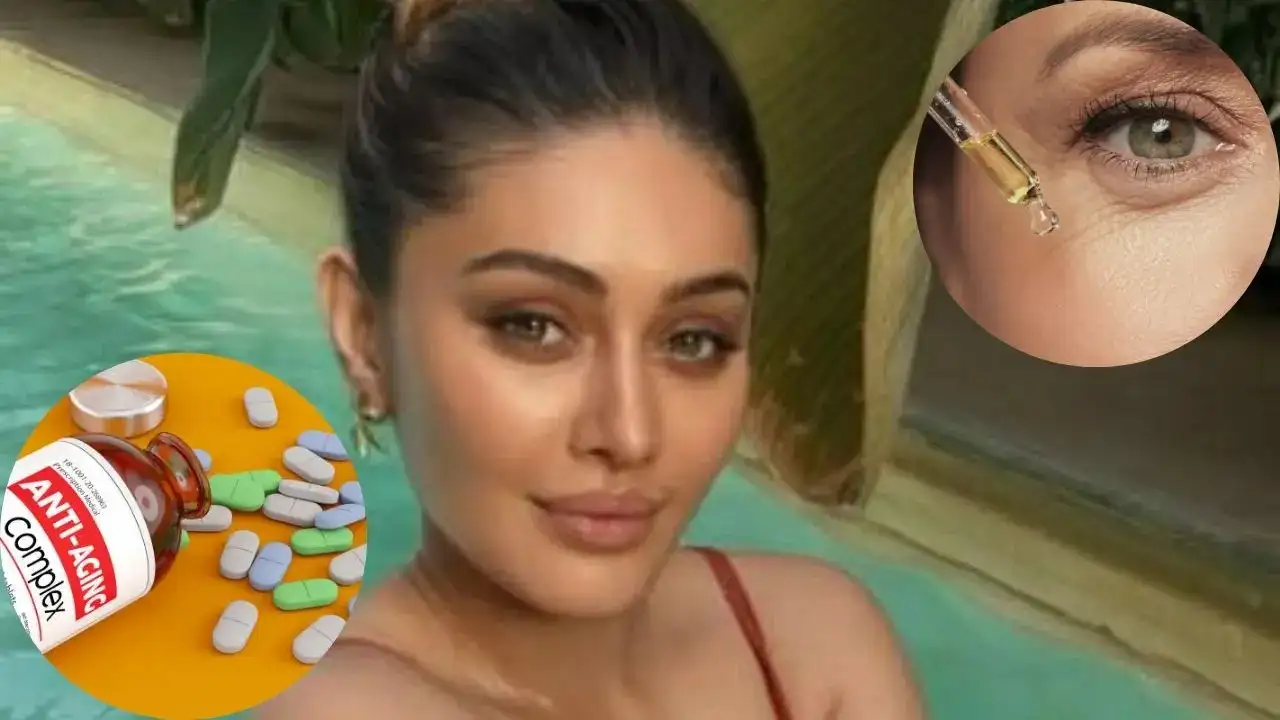
Doctors say most of the anti-ageing supplements sold online are not FDA approved (Pic: Instagram/iStock)
Actor Shefali Jariwala’s death has become a major talking point, raising questions about the actual cause that may have led to a cardiac arrest, as reported in the media. The 42-year-old actor-performer passed away Friday night at her home in Mumbai. News reports say police found evidence of self-medication, and among the things discussed is that she took anti-ageing pills and relied on skin improvement treatments like glutathione.
While in the glamour world, there is a lot of pressure on prioriti agelessness—the extent of obsession drives people to resort to all sorts of biohacks that are being sold and promoted online instead of going to a doctor. Most youngsters today are looking for shortcuts and anti-ageing procedures that can stop wrinkles and lines of ageing and make their appearance look perfect.
The sudden death of actress Shefali Jariwala has raised questions about the safety of "anti-ageing" treatments. Reports suggest she took an injection containing glutathione and vitamin C on an empty stomach, which may have led to a drastic drop in blood pressure and cardiac arrest. The exact cause is still under investigation.
We spoke with experts to find out why anti-ageing procedures go wrong. According to Dr Anesh Jain, consultant cardiologist at Ruby Hall Clinic, most of the anti-ageing drugs have no certifications or approvals by the governing authorities, making them completely unsafe. Also, since the industry is largely unregulated, many products that are in clinical trials have not yielded any significant positive results. “There is no FDA-approved category for 'anti-aging drugs'; the term covers a wide range of supplements and cosmetic treatments, many of which lack long-term safety data. And so, taking such substances while fasting, dehydrated, or in combination with other medications can be risky.”
“A sudden drop in blood pressure, especially without medical supervision, can trigger serious complications, including cardiac arrest,” he added.
What are anti-ageing medicines?
Anti-ageing medicines address the underlying causes of ageing and help alleviate any age-related ailments. This includes drugs or combinations of drugs and compounds that slow the ageing process.
“While glutathione and vitamin C are generally not harmful, their impact can vary depending on a person’s health status and how they are administered,” said Jain.
"Anti-ageing therapies should always be tailored, monitored, and based on thorough diagnostics. What works for one body could be dangerous for another, especially if there are hidden heart issues," said Dr Mahnaz Jahan Begum, founder of Keradis, a board-certified super specialist and medical director at Aterm Clinics.
What is glutathione?
According to experts, glutathione is a powerful antioxidant that is found in every cell in the body. It is made of three types of molecules known as amino acids, which combine in different patterns to make all of the proteins in the body. A unique feature of glutathione is that your body is able to make it in the liver, which is not true of most antioxidants. Glutathione has many important functions, a few of which include:
- Making DNA, the building blocks of proteins and cells
- Supporting immune function
- Breaking down some free radicals
- Helping certain enzymes function
- Regenerating vitamins C and E
- Assisting regular cell death
What are the side effects and risks?
Doctors say that while taking a diet rich in glutathione-boosting foods does not generally pose any risks but if you are taking supplements and administering glutathione injections, it can be risky.
A few possible side effects may include:
- Abdominal cramps
- Bloating
- Trouble breathing due to bronchial constriction
- Severe allergic reactions, such as rash
All the studies done on glutathione and similar supplements have called for a need for rigorous, large-scale clinical trials to confirm their safety, long-term use, and optimal dosing.
